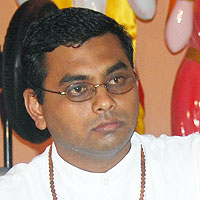Previously we established that during adolescence, the teenage brain changes to allow for more logical thinking. Therefore, the second most important thing to happen in our children’s lives is for their thinking to be moulded within a Hindu framework. This is the time for parents to teach their children certain life skills like cognitive thinking, self-awareness and self-confidence. The World Health Organisation defines life skills as “the abilities which help us to adapt and behave positively, so that we can deal effectively with the challenges of everyday life”.
Many of our Hindu youth are in dire need of certain essential life skills, particularly in the areas of assertiveness, self-confidence and self-esteem, and so are unable to deal with the challenges of being Hindu in many hostile situations. Since getting an education largely preoccupies the adolescent’s life, this is a good time to inject a Hindu education into our children’s lives. So now we can expose our children to certain Hindu concepts and tenets such as reincarnation, ancestral worship, symbolism of the varied forms of God and so forth. Personally, I find the concept of ‘karma’ to be practical, simple and meaningful. Knowledge of the concept of ‘karma’ can help our young children to understand that hard work is rewarded, to accept misfortune and rise above it and that God is not unjust.
In today’s world, where critical thinking is an integral part of life, our children will require more than blind faith in their religion. If we as parents guide our children in good critical thinking about Hinduism, they will be able to seek and find the wonderful explanations for our customs, practices and beliefs. The right knowledge will act as a defence mechanism against the local and foreign missionaries who travel through our communities on foot, shielding themselves with umbrellas and hats, and knock on our Hindu doors for the sole sake of conversion.
Hindu education is the key to keeping our Hindu teenaged children enlightened, proud and spiritually secure. Since Hindu philosophy and tenets are so grounded in practicality and common sense, many well-to-do people in the western world are adopting them. This is why the names, Mahatma Gandhi, Ramakrishna and Patanjali are known to the western world. It is crucial that we parents allow our children exposure to these names and philosophies as part of their educational process. As a result of modern technological advances in communication, Hindu literature is easily accessible to all of us. Sustained attendance at temple services is yet another accessible means for children to be informed about Hinduism.
When our young children are educated about their religion, they will begin to feel proud of who they are becoming. This in turn will help them develop social life skills like assertiveness and refusal and emotional life skills like self-confidence and self-esteem. When he was asked by someone, “When yuh dead grandfather coming to eat dat food?” the ignorant young Hindu boy bent his head and walked away. When the knowledgeable Hindu boy was asked same, he proudly replied, “My ‘aja’ will eat when your grandmother come out she grave to smell the roses allyuh leave she.”
By Mrs. Mala Persad


